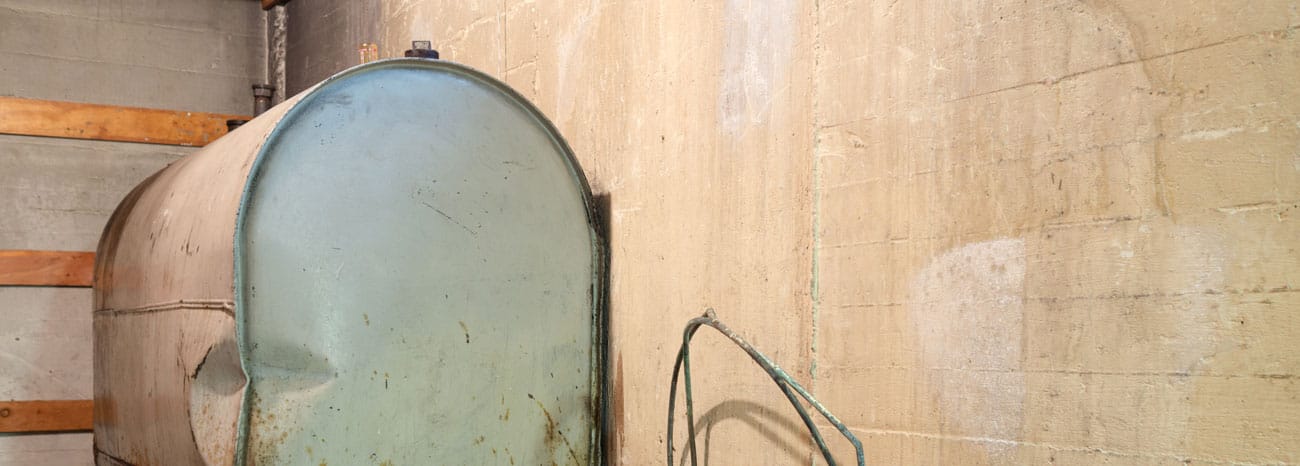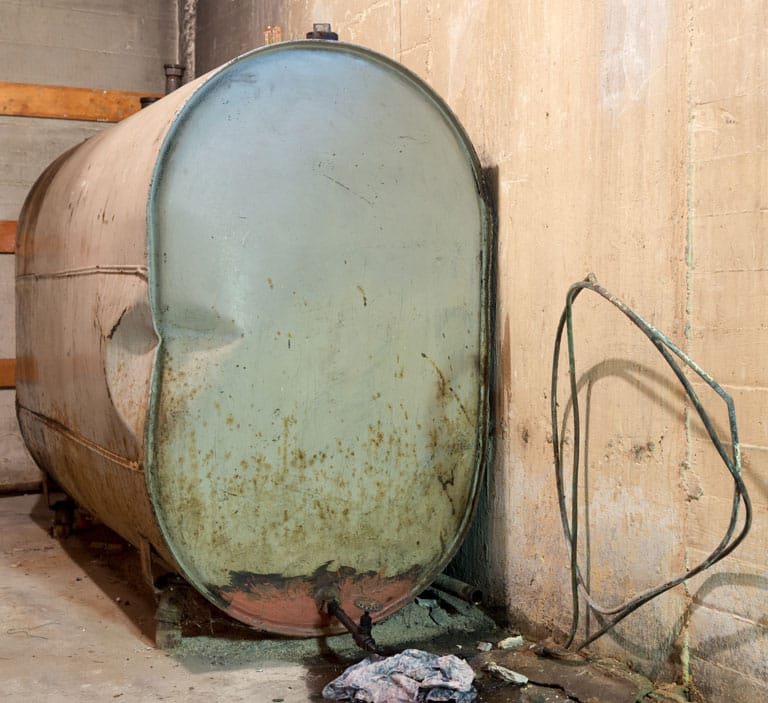Oil tanks are built to last, with some indoor tanks lasting as long as 30 years. This kind of longevity is great, but it also means checking the health of your oil tank might not be high on your homeowners’ punch list.
Remember that oil tanks tend to corrode from the inside out due to trapped moisture or particulates, so never assume your tank is fine due to a visual inspection of the outside alone. Use our oil tank checklist and safety check found on this page to determine if your oil tank is running low or experiencing other problems.
Here Are Some Signs You May Need An Oil Tank Replacement:
- Rust and Wet Spots
If your oil tank is running low, condensation can form in the tank, leading to rust or corrosion. Rust particles can sit at the bottom of the tank and get pulled into the fuel line. When this happens, the unit will not burn effectively and can cause the system to fail. - Clogged Filters
As oil runs low, sediments may flow through the system and clog the filters. If sediments or impurities get sucked into the fuel line, it could cause significant damage or lead to system failure. - Cracked, Stuck, or Frozen Gauge
The best way to avoid running low on oil is to monitor the level in your tank regularly. However, oil gauges can malfunction. If the oil is leaking, the buildup may cause the gauge to stop reading. And if the gauge is cracked, stuck, or frozen, it might not give an accurate depiction of how much oil you have in your tank. - Leaks
A leak in an outdoor fuel tank can be hard to detect. In fact, an outdoor fuel tank leak can go undetected for years without anyone realizing it. Even rising fuel bills can be attributed to price increases and not a leak. Usually, homeowners notice something is amiss when the fuel doesn’t last as long as it used to, but you should pay attention to your gas bill too. A few other ways to detect a leak are looking for wet spots or puddles around the tank and along the piping, or a persistent odor of heating oil. - Weak or Unstable Legs
Many times, the overall condition of your tank can be reflected by the legs that support it. While it may be possible to to replace just the legs on many tanks, it might be simpler and most cost effective to place the whole tank. - Sheer Age
While many indoor oil tanks can last up to 30 years, most outdoor, aboveground tanks should be replaced every 10-12 years. - Poor Oil Efficiency
If you are noticing a decrease in your heating oil efficiency, it may be a sign that your tank or system is getting old and losing oil. Don’t just assume increased fuel costs are due to price changes or increases in usage.
Risks of Not Getting an Oil Tank Replacement
While it does cost money to get your oil old tank replaced with a new tank, those costs are considerably less than if you leave a leaking tank untreated. On top of the increased heating fuel cost, continually leaking contaminants into your yard you will eventually need to pay for their cleanup and removal. Depending upon the severity of the spill, you may also be liable for soil remediation. All of which could cost you thousands of dollars.
Lastly, leaving your damaged oil tank unrepaired could lead to a loss of heat during a critical time.
Get Your Oil Tank Inspected
As the weather gets colder, it’s essential to have plenty of heating oil in the storage tank. The best way to avoid running low is to monitor your levels. Leaks, rust, clogged filters, or gauges can all point to signs that your oil may be running low.


